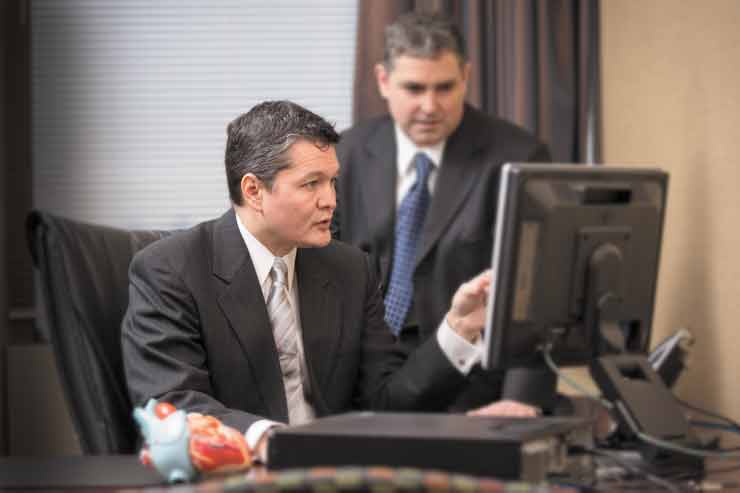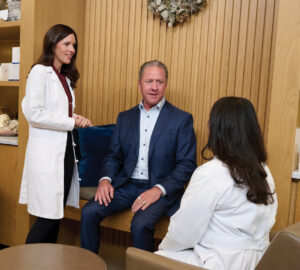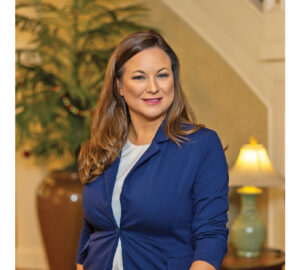Heart valves are the body’s unsung heroes. These four hardworking flaps of tissue open and close to push life-sustaining blood in the right direction and keep it from flowing backward. “Most of us never give it a second thought—until something goes wrong,” says cardiac surgeon Dr. Richard Lee of SLUCare, the physicians of Saint Louis University. And when something goes wrong, heart patients now have a new option: SLUCare’s Heart Valve Clinic, the latest addition to the Center for Comprehensive Cardiovascular Care.
Heart valve disease affects approximately 5 million Americans annually. Whether it’s a congenital condition or stems from infections, heart disease or age-related changes, valve disease can cause a long list of problems, some of them life-threatening. “Basically, two things can go wrong,” says Lee, who co-directs the Center with interventional cardiologist Dr. Michael Lim. “Sometimes, valves are too tight and can’t open all the way, so your heart and other organs don’t get enough blood. But more commonly, valves fail to close completely, causing blood to leak backward into the lungs.” Excessively tight valves may need to be replaced; leaky valves usually can be repaired.
Symptoms of valve disease can range from dizziness, shortness of breath and fatigue to fluid retention, chest pain and cardiac arrhythmia, Lee explains. But symptoms can be hard to detect, misdiagnosed, mistakenly attributed to lung issues, or completely overlooked, he adds. “And, as medicine gets increasingly complex, knowledge is advancing more rapidly than most physicians can keep up with.”
For example, Lee notes, many doctors don’t know there is a strong association between valve disease and atrial fibrillation, a potentially fatal arrhythmia affecting more than 6 million people in the U.S. “Afib should be treated during surgery for valve disease,” he says. “But doctors who lack experience treating afib often don’t check for it before surgery, so it goes untreated, or incompletely treated—resulting in a lower chance of survival and a higher risk of stroke for the patient.”
Similarly, patients with congenital irregularities in their aortic valve need to be monitored closely and screened for related issues, and they often need surgery up to 10 years earlier than individuals with acquired valve disease. “At the Heart Valve Clinic, we screen their family members as well, because this can be a hereditary issue,” Lee says. “Caught in time, we can fix problems before permanent damage occurs, using the latest minimally invasive procedures, when appropriate.”
That’s why it’s important to have a clinic devoted solely to heart valve issues. “By integrating cardiology and cardiac surgery, we break down the barriers that keep people from getting the very best diagnosis, treatment and management of their disease,” Lee says. “We don’t send them to three different offices to get three conflicting opinions. Our expert team sits down with each patient and explains their options. Then we collaborate with each other and with the patient, making sure they get the information they need to be an active partner in their own care.”
By Tony Di Martino
Photo by SLUCare
Pictured: Drs. Michael Lim and Richard Lee.
[SLUCare’s new Heart Valv e Clinic, part of the Center for Comprehensive Cardiovascular Care, is located at University Tower, 1034 S. Brentwood Blvd. For more information, call 314.977.4440 or visit heart.slucare.edu/heartvalve.]








